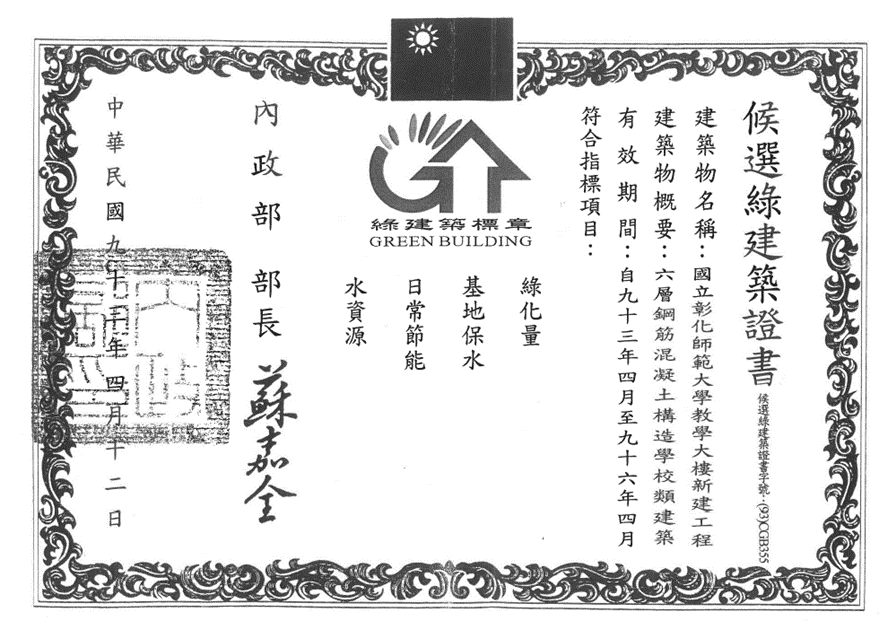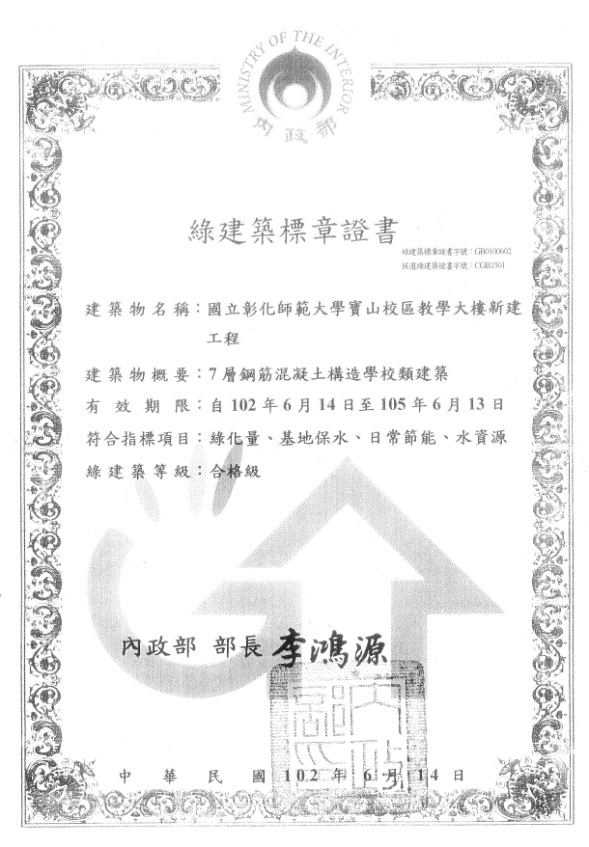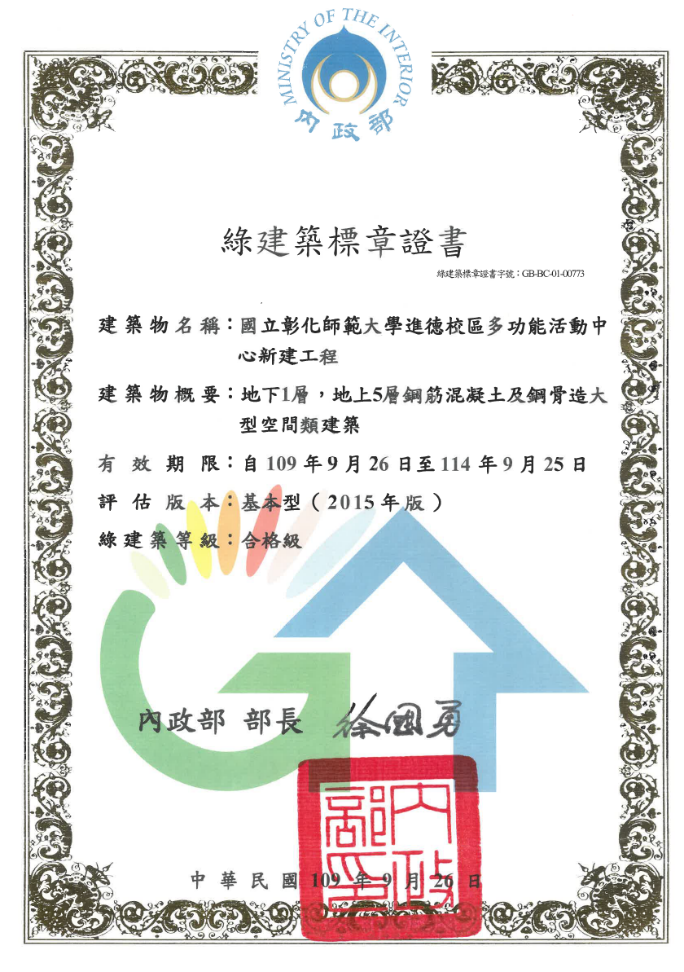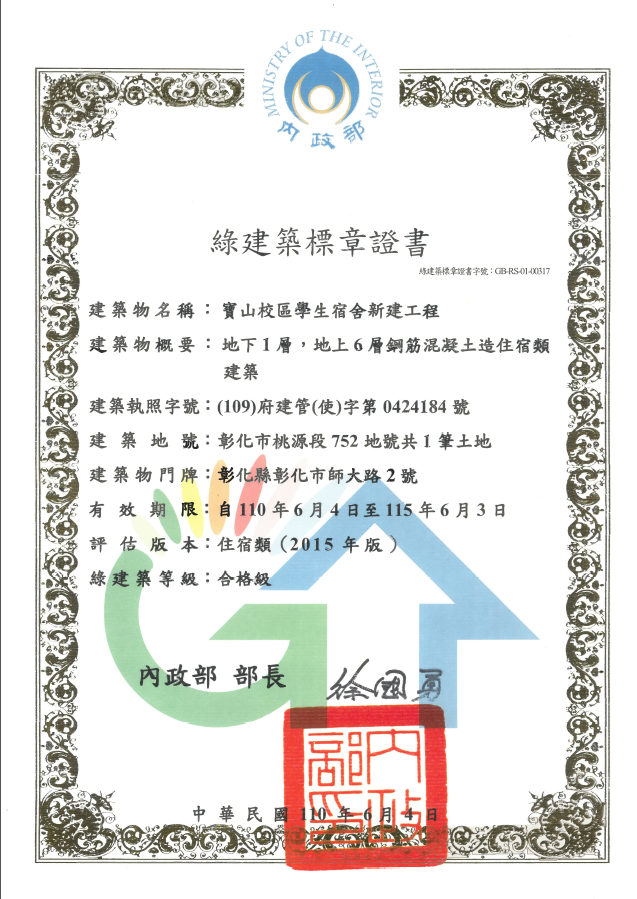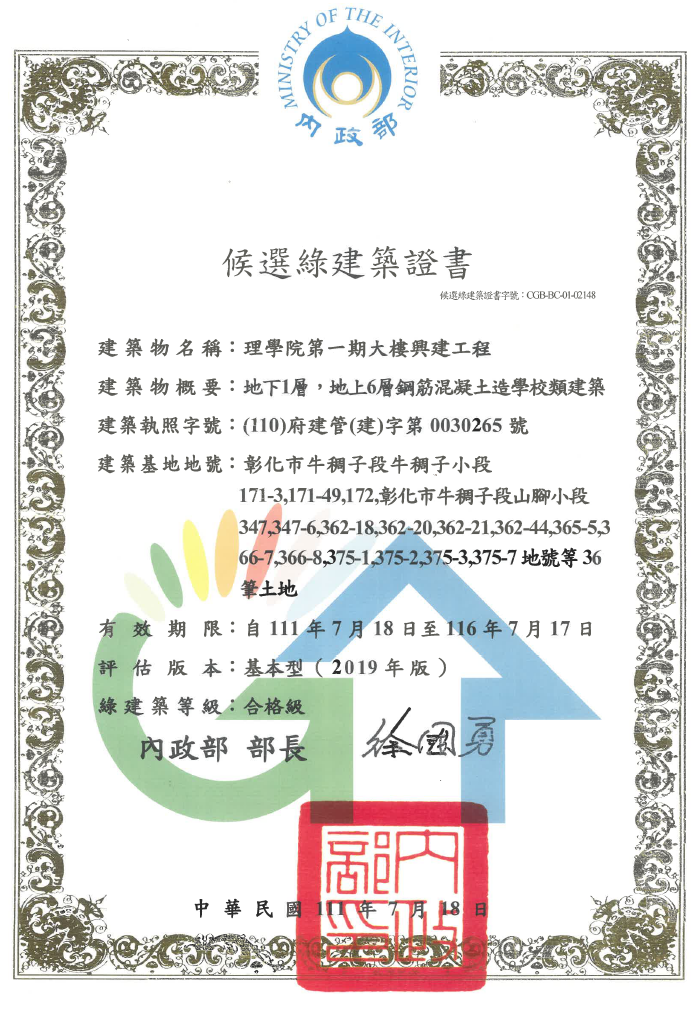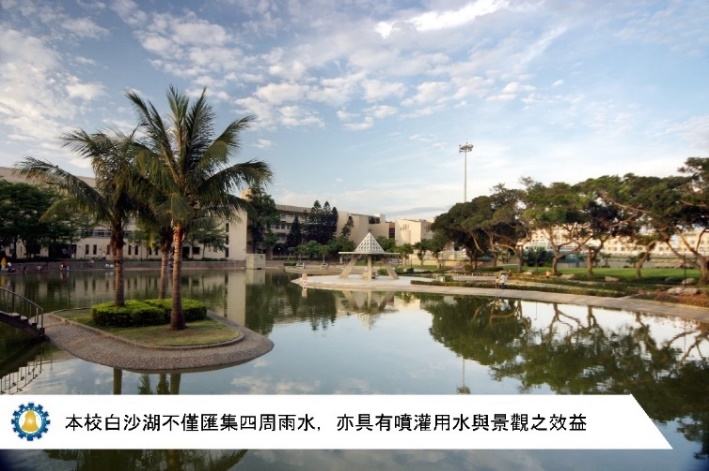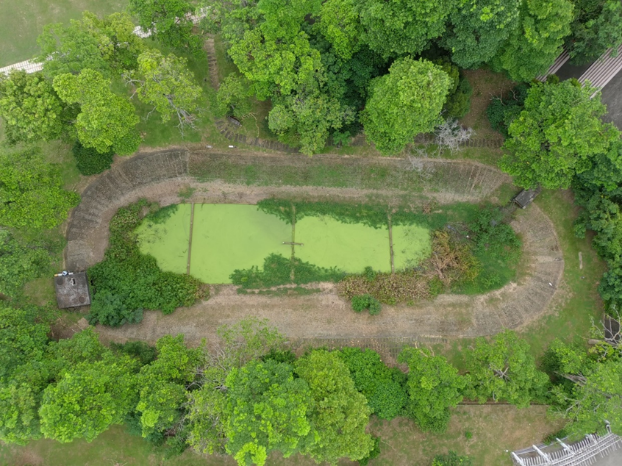SDG 6.4.1 Water reuse policy
1. NCUE has established smart campuses that operate on a sustainable living platform and has implemented various strategic tools in accordance with the United Nations’ sustainable development indicators. The main effects focus on smart governance and education, public safety, water resources, smart energy, healthcare, and intelligent transportation. Regarding water resources, conductivity and pH values are monitored at the three wells on campus. Real-time data are obtained through water quality detection sensors, and the detected data are then transmitted to the water resources monitoring system in real time on the Internet. These facilitate the effective management of the wells’ water quality and the optimal distribution and utilization of the water resources.
2.The requirements stipulated under the Green Building Label certification have been implemented for all new buildings. Those constructed and completed after 2003 are equipped with rainwater recovery ponds, and the recovered rainwater is used for sprinkler irrigation, thereby effectively recycling the precipitation received on campus. Since 2003, NCUE has completed the construction of four buildings and is currently under construction of one new building. All the new constructions comply with pertinent regulations and have obtained green building labels and certificates, as shown in Table 1 and Figures 1-5:
Table 1. List of green buildings at NCUE and related information
|
No. |
Information on green building |
Green Building Certification number |
|
|
1 |
Building name |
Main Teaching Building, Jinde Campus |
Candidate green building certificate number (Figure 1) (93)CGB355 |
|
Official opening |
Approximately 2006 |
||
|
2 |
Building name |
College of Engineering Building, Baoshan Campus |
Green building certificate number (Figure 2) GB0100602 |
|
Official opening |
Approximately 2012 |
||
|
3 |
Building name |
Wang Jin-pyng Activity Centre, Jinde Campus |
Green building certificate number (Figure 3) GB-BC-01-00773 |
|
Official opening |
Approximately 2019 |
||
|
4 |
Building name |
Construction of new student dormitory, Baoshan Campus |
Green building certificate number (Figure 4) GB-RS-01-00317 |
|
Official opening |
Approximately 2021 |
||
|
5 |
Building name |
College of Science Building (phase 1) |
Candidate green building certificate number (Figure 5) CGB-BC-01-02148 |
|
Official opening |
Scheduled for completion in 2024 |
||
|
|
|
Figure 1. The green building certificate candidate for the teaching building of the Jinde campus of NCUE |
|
|
|
Figure 2. The green building certificate of the School of Engineering of Baoshan Campus of NCUE |
|
|
|
Figure 3. The green building certificate of Wang Jin-Pyng Activity Center of NCUE |
|
|
|
Figure 4. The green building certificate of the new construction of the student dormitory on the Baoshan campus of NCUE. |
|
|
|
Figure 5. Candidate green building certificate for College of Science Building (phase 1) |
3. The artificial Baisha Lake sited on the Jinde Campus has an area of approximately 9,000 m2, and the detention basin in the Baoshan Campus is 4,500 m2. These two features serve the functions of flood storage during precipitation and enable the collection of rainfall and the absorption of drainage discharged from the surrounding buildings and green spaces. After collection, the rainwater and drainage are used in the sprinkler irrigation for the lawns and flowerbeds on campus. As shown in Figures 6-7:
|
|
|
Figure 6. The picture above is Baisha Lake, Jinde Campus of NCUE |
|
|
|
Figure 7. Detention basin in the Baoshan Campus |

